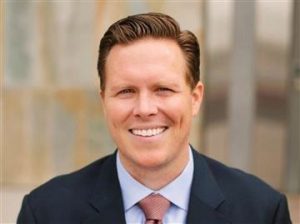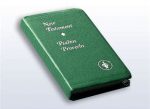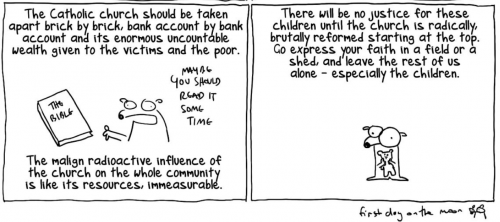In Ohio, the Republicans tried to get that impractical and impossible “let’s just reimplant ectopic pregnancies in the uterus!” ideas enshrined in a law. The problem with that plan is that implantation is a complex biological process that entangles delicate maternal capillaries with equally delicate capillaries in the embryonic placenta — it’s like proposing to stitch two sponges together in perfect alignment. This isn’t a plumbing problem, where you couple a few pipes together and voila, the flow is restored, and further, interruption of the exchange of nutrients between mother and embryo is fatal to the embryo.
Awareness of the scope of the problem isn’t a concern for Republicans, though. Let’s see how the sausage is made.
An Ohio lawmaker who proposed legislation extending insurance coverage to a procedure considered medically impossible as a way of fighting abortion worked closely on the bill with a conservative lobbyist, according to newly released emails.
State Rep. John Becker, a southwestern Ohio Republican, got help from Barry Sheets, a lobbyist for the Right to Life Action Coalition of Ohio, as he crafted a measure that’s since drawn international scrutiny for its questionable medical grounding, The Cincinnati Enquirer reported Wednesday.
The bill prohibits insurers from covering abortion services, but provides an exception for a procedure “intended to reimplant” an ectopic pregnancy in a woman’s uterus.
Becker told the newspaper he never researched whether re-implanting an ectopic pregnancy into a woman’s uterus was a viable medical procedure before including it in the bill. Sheets declined comment.
“I heard about it over the years,” Becker said. “I never questioned it or gave it a lot of thought.”
First step: partner up with a fanatical anti-abortion zealot who writes the bill for you.
Second step: Don’t question what they say. You don’t need to understand what the lobbyist wants, and thinking about it is just awkward.
Presto! You have a law legislating the impossible! It sure makes your ignorant electorate happy, though.
I wish I could say we should require better education in biology, and science in general, before lawmakers are allowed to write laws dictating how reproductive biology works, except that there sure seem to be a lot of anti-choice doctors who run for Republican positions. They ought to know better, but they don’t.








